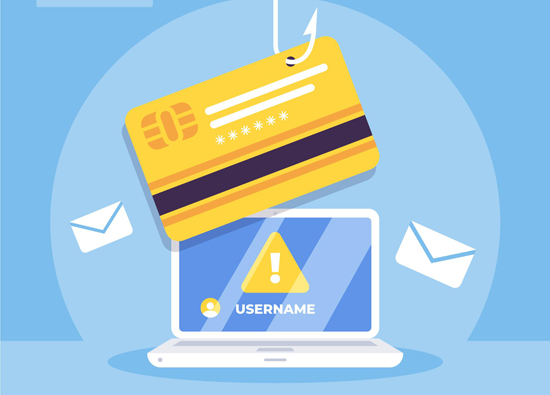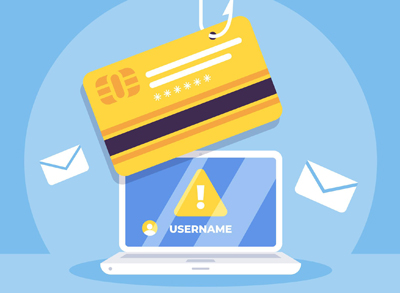10.2023 Office Talk
Retail Digital New Challenge Online Fraud Stop Watching and Listening
Group Comprehensive Efficiency and Retail Planning Headquarters / Group Comprehensive Efficiency Group

 Online fraud has become a hot topic in society, seriously endangering people's property and privacy. Although the majority of the public has a preliminary understanding of the tactics of fraud groups, the fraud techniques are still constantly being innovated. This article will share the two types of online fraud that most commonly occur in retail channels. When encountering similar scams, please be vigilant and avoid losses.
Online fraud has become a hot topic in society, seriously endangering people's property and privacy. Although the majority of the public has a preliminary understanding of the tactics of fraud groups, the fraud techniques are still constantly being innovated. This article will share the two types of online fraud that most commonly occur in retail channels. When encountering similar scams, please be vigilant and avoid losses.According to statistics from the Ministry of the Interior, there were as many as 7000 reported cases of online fraud in 2022, with tens of thousands of victims and financial losses exceeding NTD2 billion. Due to the unbounded and rapidly spreading nature of the internet, fraud groups use fake identities or deceive victims to disclose personal information, thereby stealing identities, stealing accounts, or engaging in fraudulent transactions through unequal time differences in information. Last year, the number of online shopping fraud cases remained high, and this year there have been a large number of financial frauds. Even department stores with good image and large transaction amounts have become a coveted field for fraud groups, not only affecting consumer rights, but also causing serious losses to channels. The following are the two most common types of online fraud that occur in department store retail:
1、 Counterfeiting department store community accounts with fake fan accounts and one page advertisements
The fraud group embezzles images and information from department store fans and official websites, establishes fake accounts on the community, and then sells products under the guise of fake fans, or uses one page advertisements to concentrate product information on one page, attracting consumers to place orders for bargains, and ultimately sending inferior products or not sending them at all. It is recommended that the public pay attention to the following key points before placing an order--
Attention to details: Counterfeiting fans often adopt a "hit and run" strategy and do not accumulate enough fans and posts. Therefore, if it is found that the frequency of webpage interaction is low, there is a lot of incorrect information, and there is no direct response to numerous questions, and there is often a rapid increase in the number of fans and likes in a short period of time, it is the behavior of filling fake accounts.
Channel verification: Call customer service and provide relevant webpage links to confirm the authenticity. Retail channels all have a rapidly improving notification mechanism. Once counterfeit fans or advertisements are found, they will immediately report to the community for suspension of power, and notify the police and the 165 National Anti Fraud Network of the Ministry of the Interior Police Department. At the same time, the difference between official fans and counterfeit fans will be publicly disclosed on their official websites to remind consumers to identify.
Ordering on the official website: The advertising promotion of department stores will inevitably flow back to their official website for online shopping or large-scale comprehensive e-commerce platforms. Therefore, transactions can only be guaranteed through formal channels such as channel apps and official website connections.
2、 Mobile payment has been stolen, tied or swiped
In the past, cases of credit card theft were usually due to the leakage of card numbers by online shopping platforms. However, in recent times, new types of fraud often involve cardholders receiving fraud messages, clicking on the SMS link, entering fake websites created by criminals, and inputting card numbers and other information. After obtaining the information, the gangster binds the mobile payment, and the bank sends the OTP password to the cardholder's mobile phone. The cardholder then enters the OTP password on a fake webpage, allowing the gangster to successfully bind the card and then hack through various channels. If the consumer does not set a hack notification, they are completely unaware of the hack transaction, which can easily cause serious losses.
In order to effectively prevent payment from being tied up and stolen, credit card issuers, payment service providers, and consumers must fully cooperate. The following are explained in three aspects.
Credit card issuing bank: The Financial Supervisory Commission required financial institutions in July 2023 to use three major mechanisms to prevent fraud - comparing phone numbers, entering customer service to confirm identity when in doubt, and promptly notifying cardholders. Among them, the issuing institution is specifically required to confirm that the mobile phone number and device used by the mobile payment operator when tying the card must be consistent with the mobile phone number left by the applicant with the issuing institution to ensure personal use.
Payment service providers: All major payment providers and channel payment providers must quickly respond and stop losses in the event of theft and theft. The Far Eastern Group action payment "HAPPY GO Pay" is led by the headquarters. With the rapid response and joint consultation of Far Eastern Group Retail and Far Eastern International Bank, financial certification mechanisms are immediately developed to prevent congestion. The response project includes: when logging in, the phone number and device must be the same, and an OTP password financial authentication mechanism should be added during transactions. If a theft incident occurs, the trading account will be immediately suspended to control losses, and the police will be notified to provide relevant information and cooperate with subsequent investigations.
Consumer: Please do not provide your own information to others, and remember to only conduct transactions through official channels of the channel, and set up a credit card consumption notification. Once it is found that someone else is using the card, immediately notify the credit card issuing bank.
In recent years, enterprises have actively developed digital services, and the usage habits of consumers have accelerated during the epidemic. At the same time, fraud groups have seized the opportunity to exploit loopholes and use various illegal means to crack the inspection and verification mechanism. Although government agencies have actively promoted it, the revision of regulations still takes time, and the rights and interests of enterprises and consumers cannot be fully protected at present. Nevertheless, enterprises still need to respond to consumer needs, enhance the experience, and provide uninterrupted digital services. Therefore, how to quickly adapt and stop losses is an important issue.
Planning lightweight, short, modular digital development, immediately adjusting any issues, conducting various situational processing and testing before service launch, confirming the completeness of the mechanism, quickly responding to problems after they occur, and avoiding loss expansion are all SOPs that digital development teams should prepare. Consumers should also maintain a calm and cautious attitude when facing opportunities for quick profits or online purchases that seriously deviate from market trends, and cooperate with the suggested anti fraud measures to stay away from traps.
Image source: freepik
#





















